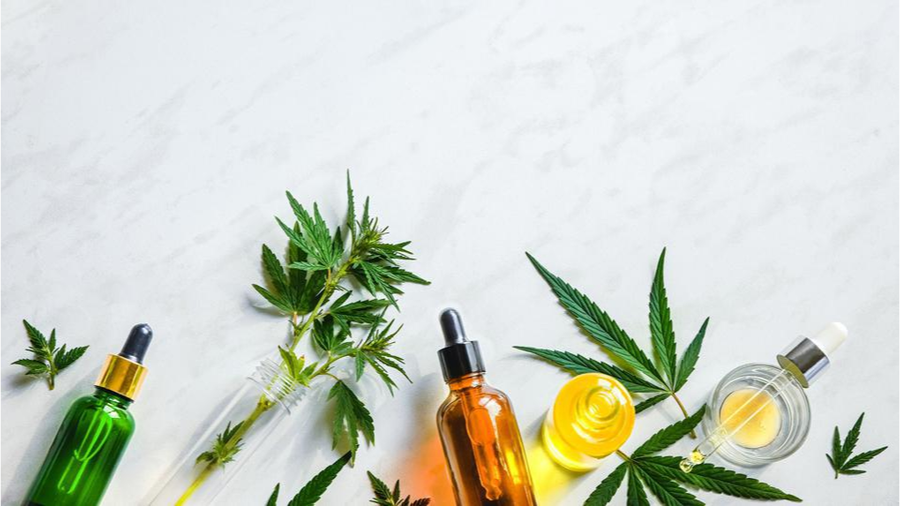Introduction:
With anxiety affecting millions worldwide, individuals seek effective remedies beyond traditional medications. CBD (cannabidiol), a non-intoxicating compound derived from cannabis, has gained attention for its potential therapeutic properties. In this guide, we explore how to use CBD for anxiety, including its benefits, dosage recommendations, and potential side effects.
Understanding CBD for Anxiety:

Anxiety disorders encompass a range of conditions characterized by excessive worry, fear, and apprehension. While various treatment options exist, CBD has emerged as a promising natural alternative due to its interaction with the body’s endocannabinoid system, which regulates mood, stress response, and emotional processing.
Benefits of Using CBD for Anxiety:
- Stress Reduction: CBD may help reduce stress levels by modulating cortisol, the body’s primary stress hormone, and promoting relaxation.
- Anxiety Relief: Research suggests that CBD may alleviate symptoms of generalized anxiety disorder (GAD), social anxiety disorder (SAD), and other anxiety-related conditions.
- Improved Sleep: CBD’s calming effects may promote better sleep quality by reducing anxiety-induced insomnia and promoting relaxation before bedtime.
- Enhanced Mood: CBD may positively influence neurotransmitter activity in the brain, potentially improving mood and overall emotional well-being.
- Neuroprotective Properties: CBD’s antioxidant and anti-inflammatory properties may protect against neurodegenerative diseases and cognitive decline associated with chronic stress and anxiety.
Dosage Recommendations for CBD:
Determining the optimal CBD dosage for anxiety requires careful consideration of factors such as individual tolerance, severity of symptoms, and product potency. While there is no one-size-fits-all approach, the following dosage guidelines can serve as a starting point:
- Low Dosage: Start with a low dose of 10-20 mg of CBD per day and gradually increase until desired effects are achieved.
- Moderate Dosage: For mild to moderate anxiety, consider a daily dosage of 30-60 mg of CBD, divided into two or three doses throughout the day.
- High Dosage: In cases of severe anxiety or chronic symptoms, higher CBD dosages of 60-120 mg per day may be warranted, under the guidance of a healthcare professional.
It’s essential to start with a low dose and gradually titrate upwards to assess individual response and tolerance. Additionally, consulting with a healthcare provider knowledgeable about CBD usage can provide personalized guidance based on individual needs.
Potential Side Effects of CBD:
While CBD is generally well-tolerated, some individuals may experience mild side effects, especially at higher dosages. Common side effects of CBD include:
- Dry Mouth: CBD may reduce saliva production, leading to dry mouth or increased thirst.
- Drowsiness: Higher doses of CBD or certain formulations may cause drowsiness or sedation, affecting alertness and cognitive function.
- Changes in Appetite: CBD’s influence on appetite varies, with some individuals reporting increased appetite and others experiencing reduced appetite.
- Gastrointestinal Disturbances: CBD may cause gastrointestinal issues such as nausea, diarrhea, or abdominal discomfort in sensitive individuals.
It’s essential to monitor for adverse reactions and adjust dosage or product type accordingly. Individuals taking medications or with underlying health conditions should consult with a healthcare provider before using CBD to minimize potential interactions or contraindications.
Choosing Quality CBD Products:
Selecting high-quality CBD products is crucial for safety and efficacy. When purchasing CBD for anxiety relief, consider the following factors:
- Full-Spectrum vs. Isolate: Full-spectrum CBD products contain a range of cannabinoids, terpenes, and other beneficial compounds from the cannabis plant, offering enhanced therapeutic effects compared to CBD isolate.
- Third-Party Testing: Choose CBD products that undergo third-party testing to verify potency, purity, and absence of contaminants such as pesticides, heavy metals, and residual solvents.
- Extraction Method: Look for CBD products extracted using clean and efficient methods such as CO2 extraction, which ensures purity and preserves the plant’s beneficial compounds.
- Certificate of Analysis (COA): Request a COA from the manufacturer to verify the cannabinoid profile and ensure compliance with legal THC limits (0.3% or less).
Conclusion:
CBD holds promise as a natural remedy for anxiety, offering potential benefits such as stress reduction, anxiety relief, improved sleep, and enhanced mood. When used appropriately and under the guidance of a healthcare professional, CBD can be a valuable tool for managing anxiety symptoms and promoting overall well-being. By understanding the benefits, dosage recommendations, potential side effects, and factors to consider when choosing CBD products, individuals can make informed decisions to optimize their anxiety relief journey with CBD.
